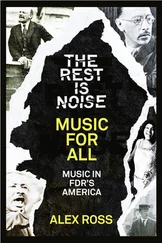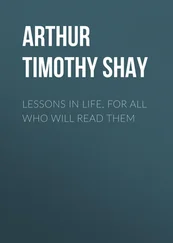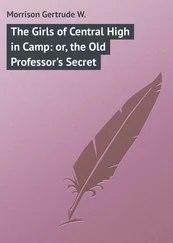Gertrude Morrison - The Girls of Central High - or, Rivals for All Honors
Здесь есть возможность читать онлайн «Gertrude Morrison - The Girls of Central High - or, Rivals for All Honors» — ознакомительный отрывок электронной книги совершенно бесплатно, а после прочтения отрывка купить полную версию. В некоторых случаях можно слушать аудио, скачать через торрент в формате fb2 и присутствует краткое содержание. Жанр: foreign_prose, foreign_children, на английском языке. Описание произведения, (предисловие) а так же отзывы посетителей доступны на портале библиотеки ЛибКат.
- Название:The Girls of Central High: or, Rivals for All Honors
- Автор:
- Жанр:
- Год:неизвестен
- ISBN:нет данных
- Рейтинг книги:3 / 5. Голосов: 1
-
Избранное:Добавить в избранное
- Отзывы:
-
Ваша оценка:
- 60
- 1
- 2
- 3
- 4
- 5
The Girls of Central High: or, Rivals for All Honors: краткое содержание, описание и аннотация
Предлагаем к чтению аннотацию, описание, краткое содержание или предисловие (зависит от того, что написал сам автор книги «The Girls of Central High: or, Rivals for All Honors»). Если вы не нашли необходимую информацию о книге — напишите в комментариях, мы постараемся отыскать её.
The Girls of Central High: or, Rivals for All Honors — читать онлайн ознакомительный отрывок
Ниже представлен текст книги, разбитый по страницам. Система сохранения места последней прочитанной страницы, позволяет с удобством читать онлайн бесплатно книгу «The Girls of Central High: or, Rivals for All Honors», без необходимости каждый раз заново искать на чём Вы остановились. Поставьте закладку, и сможете в любой момент перейти на страницу, на которой закончили чтение.
Интервал:
Закладка:
Morrison Gertrude W.
The Girls of Central High; Or, Rivals for All Honors
CHAPTER I – A BLOW AT THE HIGH COST OF LIVING
“Hey, Laura!”
The side window of James Belding’s jewelry store was open behind the grillwork of strong steel bars. Laura had just finished dusting the inside of the last show case in the row on that side of the wide shop, and had replaced the trays. This was Laura Belding’s usual Saturday morning task; her father would not trust Chet to do it, although the lad often waited on customers.
Just now Mr. Belding was at the front of the store, showing a tray of his most valuable rings to a customer. The shopper was a stranger to both the jeweler and his daughter, who were alone in the place; therefore Mr. Belding’s eyes did not leave the tray before him.
“Hey, Laura!”
The call was repeated in a loud “stage whisper”; the sound came from the open window. Laura started and turned to look. She could see a fly-away mop of flaxen hair, a line of forehead, and two sparkling brown eyes.
“Bobby Hargrew!” she cried, and went to the window.
“Oh, Laura! I want something,” whispered her friend, fairly dancing up and down outside the window. “I’ve got such a scheme!”
“What is it now?” asked Laura, sedately. “Bobby” Hargrew’s schemes were often very crack-brained indeed. Everybody – except her grandmother – called her “Bobby” instead of “Clara.” There were no boys in the Hargrew family; but her father, Tom Hargrew, declared that Clara was just as much fun as any boy. And she certainly was a “fly-away.”
“Get your father to let you have that big magnifying glass we were looking at last week, and bring it along to the store,” whispered Bobby, chuckling while she preferred the request.
“What for?”
“Never mind! I’ll show you when we get to the store. Dad’s about to shut up. Hurry, now!”
Tom Hargrew’s grocery store was on the block just beyond the Belding shop.
“I – don’t – know,” murmured Laura, glancing at her father and his customer. “Pa’s busy.”
“Oh, come on!” cried the harum-scarum Bobby. “I won’t hurt the old glass.”
Thus adjured, Laura put on her hat and walked slowly to the front of the store with the magnifying glass in her hand.
“Father,” she said softly, touching his arm, “I want to borrow this for a little while. I will bring it back.”
He nodded. He could not leave his customer then. So Laura walked out of the store and joined her school friend in Market Street. The girls were sophomores in Central High School of the city and they had always lived in adjoining streets, so were very good friends. Bobby was so full of mischief that it was hard to keep her out of trouble; but sometimes the more quiet daughter of the jeweler had a restraining influence over the younger girl.
“Oh, I’ve got the greatest scheme!” gasped Bobby, choked with laughter. “Hurry up before Daddy closes.”
“What have you been doing now?” asked her friend, admonishingly.
“Just dressing one of the store windows – honest to goodness! that’s all I’ve been doing.”
“But why the magnifying glass?”
“That’s it. You’ll see the joke. Hurry,” urged Bobby, pulling Laura along the walk.
They came to Mr. Hargrew’s grocery store and Bobby halted her friend before the first window. It was tastefully arranged with canned goods and package products; but in the center, in a bed of different colored tissue paper, was an ordinary loaf of bread of small size. Above it was a freshly lettered card bearing the legend:
“But I don’t see the joke,” murmured Laura, turning to her giggling friend, curiously.
“Wait!” cried Bobby. “You’ll see. Give me that glass.”
She snatched the magnifying glass from her friend’s hand and whisked into the store. In a moment she had set the glass in such a way before the loaf of bread that anybody passing the window must look at the bread through it – and the loaf certainly looked to be a huge one for the stated price on the card above.
Laura had to laugh. And she knew it would make many other people laugh before Monday morning. Such little jokes attracted trade, too, and Bobby Hargrew was full of novel ideas. Her father came outside and viewed the advertising display admiringly.
“Hasn’t that young one got a great head?” he said. Bobby’s capers usually “tickled” her father. Having no son, he made her his companion as though she were a boy.
Already pedestrians had begun to stop before the window and laugh over the joke. Laura turned to go back to her father’s store.
“You’re coming up to the school this afternoon, Bobby?” she asked.
“I don’t know,” returned her friend, slowly. “I wanted to see the East High boys beat the West High boys. First baseball game of the season, you know; I just hope Central will win the pennant.”
“So do I,” murmured Laura. “But I think we girls should have some interest in athletics besides our loyalty to the boys’ baseball and football teams. I want the girls of Central High to organize for our own improvement and pleasure. Don’t you?”
“Do you suppose anything will come of the meeting this afternoon?” queried Bobby, doubtfully. “Old ‘Gee Gee’ is opposed to it.”
“How do you know Miss Carrington doesn’t like the idea?” asked Laura, quickly.
“She told us if we did not stand well in deportment, as well as in our studies, we could not belong to the new association – if it was formed.”
“Well, why should we? We’ve got to play the game, Bobby. It’s only honest in us to do our work well if we want the fun of playing basket-ball, and learning to dance, and row, and swim, and all the rest of it.”
“Well, it’s little fun I’ll get out of it,” sighed Bobby. “Gee Gee is forever putting black tally-marks down against me.”
“Miss Grace G. Carrington, whom you so impolitely term ‘Gee Gee,’” laughed Laura, “is thoroughly familiar with you, Miss Bobby Hargrew. You cannot fool her for one little minute – that’s why you don’t like her.”
The grocer’s daughter flushed; but she laughed, too.
“Perhaps you’re right,” she admitted. “She always does catch me at things.”
“Then don’t do ‘things,’” advised Laura Belding, with a smile.
“Can’t all be ‘Miss Prims,’ like you, Laura,” cried Bobby saucily.
“You’ll come to the meeting, just the same?” urged her friend.
“Oh, yes; I’ll come. I hope we’ll get a girls’ athletic association formed, too. The boys won’t let us play with them if we want to, and I’d like to learn how to play some game beside Puss in the Corner and Drop the Handkerchief. We’re all getting so dreadfully lady-like and grown up. I hate to grow up. If I’ve got to be all stiff and starched all the time, I’d rather be a boy. Why! Nellie Agnew looks so much like her mother, back to, when she’s dressed up, that last Sunday I asked after her rheumatism in my best-bred voice before I saw ’twas Nell!” and again Bobby broke into one of her jolly laughs.
“You come to the meeting. Mr. Sharp approves, and maybe he’ll be there; so will Mrs. Case, our gymnastic teacher.”
“I’ll come, Laura,” promised the harum-scarum, as the jeweler’s daughter went on to her father’s shop. The customer had gone when she arrived and Mr. Belding was putting up the grating at the door. The more valuable articles of the stock had been put into the huge safe at the back of the room, and the safe locked.
Читать дальшеИнтервал:
Закладка:
Похожие книги на «The Girls of Central High: or, Rivals for All Honors»
Представляем Вашему вниманию похожие книги на «The Girls of Central High: or, Rivals for All Honors» списком для выбора. Мы отобрали схожую по названию и смыслу литературу в надежде предоставить читателям больше вариантов отыскать новые, интересные, ещё непрочитанные произведения.
Обсуждение, отзывы о книге «The Girls of Central High: or, Rivals for All Honors» и просто собственные мнения читателей. Оставьте ваши комментарии, напишите, что Вы думаете о произведении, его смысле или главных героях. Укажите что конкретно понравилось, а что нет, и почему Вы так считаете.












